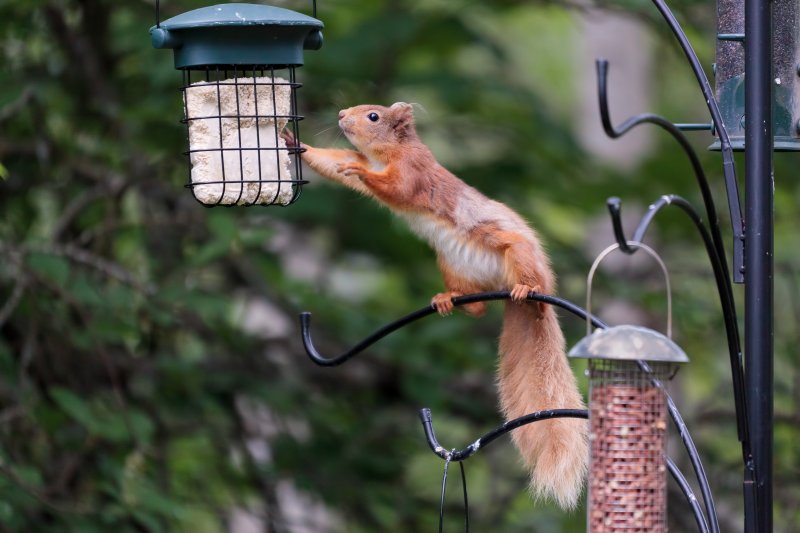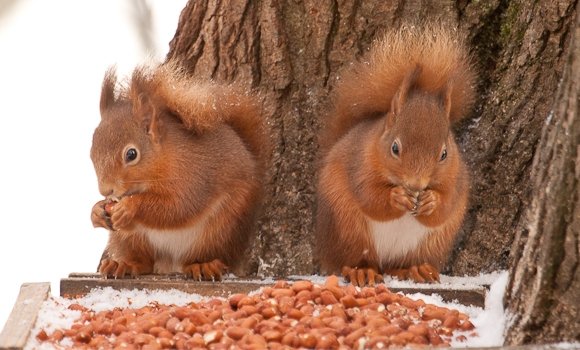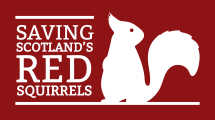Original Author: Gill Hatcher
It’s the RSPB’s Big Garden Birdwatch this weekend. Are your feeders filled up and ready to go? Once the fun is over, why not be a hero for nature and give them a good spring clean. You’ll be helping to keep your furry (and feathered) garden visitors happy and healthy.

The RSPB is asking us all to devote one hour this weekend to recording the birds we see in our garden or local green space. They would also like to know what other species regularly pay us a visit, including red and grey squirrels. Most people around the UK will stand a much better chance of seeing a grey squirrel, but for the lucky few, red squirrels are the norm. Especially in gardens where they know they’ll find a ready food supply.
In our red squirrel feeding guide, we recommend only supplying small amounts of food at irregular intervals, to prevent squirrels developing a dependency on supplementary food. Even so, with our busy lives, it’s not always easy to remember, and keeping up with the appetite of a hungry squirrel can be a challenge!
It’s even more difficult to find the time to keep feeding equipment clean, but this is one of the most important things you can do to help keep the wildlife in your garden healthy.
The problem
One of the greatest threats to red squirrels is the squirrelpox virus, which first came to the UK with the introduction of non-native grey squirrels. The grey squirrels that carry squirrelpox display no symptoms, having long developed immunity to the disease. Unfortunately, red squirrel populations have not had a chance to develop widespread immunity, and in most cases the disease is fatal within a couple of weeks. At the moment, squirrelpox is prevalent throughout the south of Scotland, and cases have also been reported in the Central Lowlands.
Squirrels are relatively solitary animals, and feeding stations are one of the main places they will come into contact with one another, for example through saliva. By keeping your feeders clean you’ll be helping us in our efforts to reduce the likelihood of outbreaks in the south, and prevent squirrelpox spreading further towards Scotland’s core red squirrel populations north of the Highland Boundary Line.
Keeping clean
We recommend cleaning feeders once a month if possible, using a pet-safe or bird-safe detergent spray (available from pet suppliers or the RSPB shop). Wear gloves and wash your hands thoroughly afterwards.
It’s also important to keep an eye on your food supply, and remove any uneaten food before it goes mouldy. If food is regularly being left uneaten, reduce the amount you provide.
If both red and grey squirrels visit your garden, we recommend removing feeders completely to reduce the risk of infection. This is especially crucial in the south, where the risk of squirrelpox outbreaks is highest.

Regular cleaning will also benefit garden birds, which are at risk of contracting diseases such as trichomonosis. So once the counting is over, consider taking the opportunity to give your feeders a scrub. Your garden wildlife will thank you!
If you do see a squirrel during your Big Garden Birdwatch (red or grey), you can help our project by also reporting the sighting. Good luck!
If you see a squirrel that you suspect has contracted squirrelpox, please contact us at squirrels@scottishwildlifetrust.org.uk
